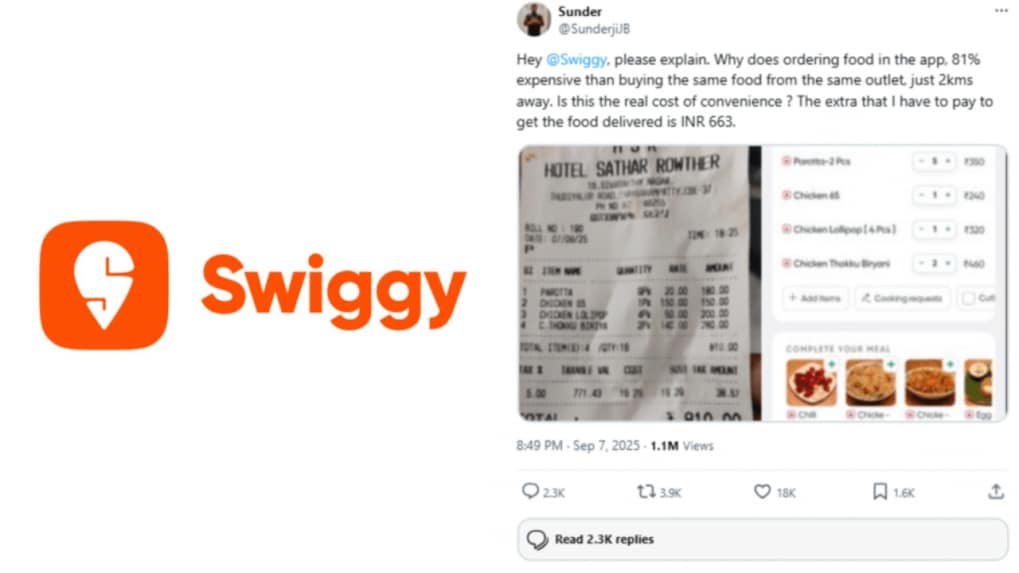Advertising
From Pink Slips to Silent Sidelining: Inside adland’s layoff and anxiety crisis

The price of online food delivery has come under fresh scrutiny after a Swiggy customer claimed he was billed 81% more than the in-restaurant cost for the same order.
In a post on X (formerly Twitter) that quickly went viral, the customer compared prices at a restaurant located just two kilometres from his home. Ten pieces of porotta, priced at ₹180 in person, cost ₹350 on Swiggy. Chicken 65 was listed at ₹150 in the restaurant but ₹240 on the app, while chicken lollipop rose from ₹200 to ₹320. The steepest difference came with chicken thokku biriyani, at ₹280 in person versus ₹460 online.
The restaurant bill totalled ₹810, including GST. On Swiggy, the same items came to ₹1,473 — a difference of more than ₹660.
Hey @Swiggy, please explain. Why does ordering food in the app, 81% expensive than buying the same food from the same outlet, just 2kms away. Is this the real cost of convenience ? The extra that I have to pay to get the food delivered is INR 663. pic.twitter.com/rvLghtJJ3H
— Sunder (@SunderjiJB) September 7, 2025
The post drew widespread responses, with many users saying such disparities were routine. “Every time it happened, but people don’t care, that’s why they are charging too much,” one user commented. Another added, “Swiggy and Zomato both do this. Their prices are different compared to the shop. Still, they are in loss… with so much higher rate and still not reflecting in the bottom line, it’s assumed they have a higher cost of burning/operation.”
The controversy comes as delivery platforms hike fees ahead of the festive season. Swiggy has raised its platform fee to ₹15 (inclusive of GST) in select cities, while rival Zomato has increased its charge to ₹12.50 per order (excluding GST). Magicpin, the third-largest player, has sought to undercut both, keeping its platform fee at ₹10 per order.
Adding to customer costs, an 18% Goods and Services Tax (GST) on delivery charges will take effect from 22 September. Industry estimates suggest this will add about ₹2 per order for Zomato and ₹2.6 for Swiggy users, further fuelling debate over the affordability of online food delivery.
From purpose-driven work and narrative-rich brand films to AI-enabled ideas and creator-led collaborations, the awards reflect the full spectrum of modern creativity.
Read MoreLooking ahead to the close of 2025 and into 2026, Sorrell sees technology platforms as the clear winners. He described them as “nation states in their own right”, with market capitalisations that exceed the GDPs of many countries.